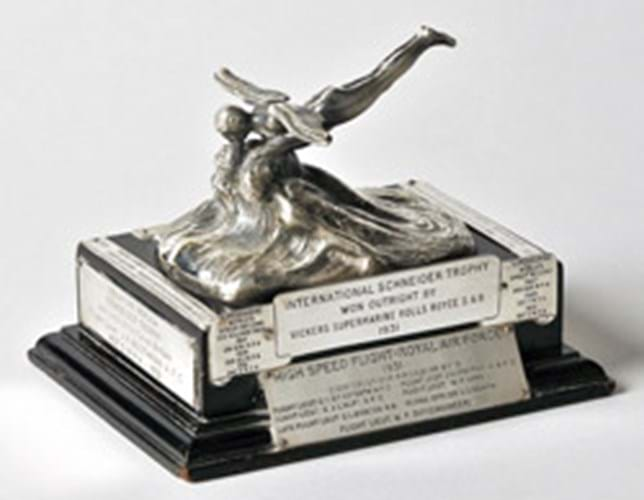
Between 1920 and a career cut short by cancer in 1936, he held the position of chief designer at the Supermarine Aviation Works in Southampton, designing 24 different aeroplanes, ranging from light aircraft and fighters to huge flying boats and bombers. This remarkable output was crowned by his short-range high-performance interceptor, better known as the Supermarine Spitfire.
The high regard in which the designer is held was amply illustrated by the response to the sale of R.J. Mitchell's possessions by Dominic Winter (17.5% buyer's premium) of South Cerney near Cirencester on May 13.
The 22 lots, part of a special Battle of Britain 70th anniversary sale, were offered by family members following the death of Mitchell's son Gordon last year, so the provenance could not be bettered.
The pre-sale estimate of £15,000 for the collection was trumped by a single lot. This was Mitchell's own miniature version of the famous Schneider Trophy - a great spur to aircraft development - won by the Supermarine S.6.B at Lee-on-Solent in 1931.
The Schneider-winning seaplanes of 1927, 1929 and 1931 are considered key to the development of the Spitfire prototype, which made its first flight in March 1936. At a time of serious belt-tightening following the stock market crash, the S.6.B was the only British entry in 1931 (and funded only by a private benefactor following the withdrawal of Government financial support), but it clocked a new world speed record at 379mph. Two weeks later the S.6.B raised the bar again to 407mph.
The original Schneider Trophy, kept in perpetuity by the British team after three wins, is now on display at the Science Museum in London. This 4 1/2in (11.5cm) miniature made in silverplate and labelled with an ivorine disc for Skinner & Co, 35 Old Bond Street, London, Aviation Silversmiths, was estimated at up to £6000 but fetched £27,000.
Other items relating to the Schneider Trophy 1931 win were eagerly contested too. An engraved silver salver, also by Skinner, with the inscription Presented to R. J. Mitchell Designer of Supermarine Rolls-Royce S.6.B. by the members of the Royal Aero Club fetched £11,000 (estimate £800-1200), while a set of three privately-recorded 78rpm records, featuring the triumphant team of Mitchell, Rolls-Royce engine designer Arthur Rowledge and the pilot Flight Lieutenant John Boothman sharing their aviation memories, sold for £5200 (estimate £800-1200).
A group of personal effects, including R.J. Mitchell's monogrammed briefcase, his pocket diaries of 1936 and '37 annotated with Spitfire-related meetings and his passport counter-signed in ink by Anthony Eden authorising the holder To Pass without Hindrance, sold collectively for £15,500 - more than 50 times their modest estimate.
By Roland Arkell




